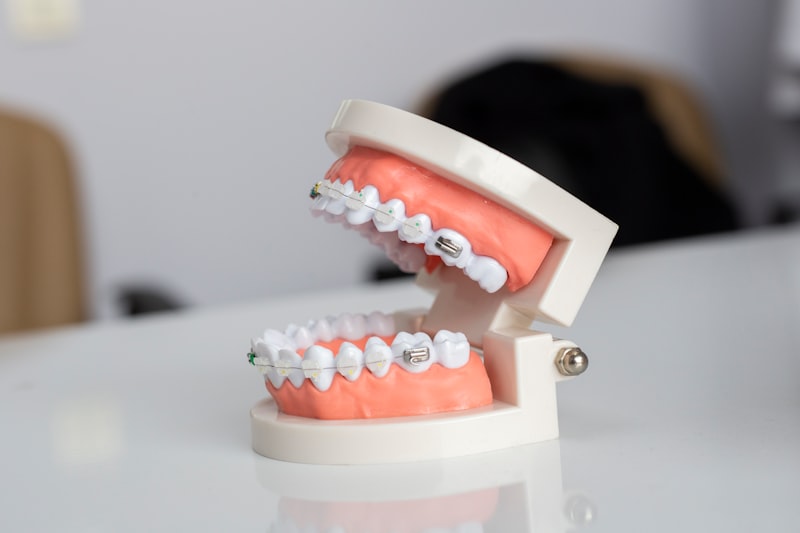Preventing and treating dry mouth involves several practical steps and remedies that can significantly improve symptoms. One effective approach is to stay hydrated by drinking plenty of water throughout the day. Water helps keep the mouth moist and aids in saliva production. Sipping water regularly, especially during meals, can also help with swallowing and digestion.
Chewing sugar-free gum or sucking on sugar-free candies stimulates saliva flow, providing temporary relief from dry mouth symptoms. These products can be particularly useful when water isn’t readily available. However, it’s essential to choose sugar-free options to avoid promoting tooth decay.
Avoiding alcohol and caffeine is crucial, as they can contribute to dehydration and exacerbate dry mouth symptoms. Both substances can have a drying effect on the mouth, so minimizing their intake or opting for alternatives like herbal teas can help maintain oral moisture.
Using a humidifier in your bedroom at night can add moisture to the air, which can be especially beneficial if you experience dry mouth symptoms while sleeping. Breathing in dry air overnight can worsen symptoms, so a humidifier can make a noticeable difference in comfort levels.
For those experiencing chronic dry mouth, consulting with a dentist or healthcare provider is advisable. They can evaluate underlying causes such as medication side effects or medical conditions and recommend appropriate treatments. Prescription medications or saliva substitutes may be necessary in severe cases to manage symptoms effectively.
By adopting these preventive measures and treatments, individuals can alleviate the discomfort of dry mouth and maintain better oral health. Consistency in hydration, lifestyle adjustments, and professional guidance can make a significant impact in managing this common condition.
Unlocking Relief: Effective Strategies to Prevent Dry Mouth
Keeping hydrated is key to combating dry mouth. Water not only hydrates but also helps wash away lingering food particles that can exacerbate the issue. Sipping water throughout the day is a simple yet powerful way to keep your mouth moist and comfortable.
Choosing snacks wisely can make a big difference. Opt for hydrating foods like fruits and vegetables, which contain high water content. Crisp fruits like apples or veggies like cucumber can stimulate saliva production, naturally moistening your mouth.
Proper oral hygiene is crucial. Brushing at least twice a day with fluoride toothpaste helps remove bacteria that can contribute to dry mouth and dental issues. Don’t forget to gently brush your tongue to clear away bacteria and keep your mouth feeling fresh.
Stimulating saliva production can provide instant relief. Sugar-free gum or lozenges can help stimulate saliva flow, offering a quick solution when you’re on the go. Look for products containing xylitol, which not only stimulates saliva but also helps prevent tooth decay.
Dry mouth can worsen at night, impacting sleep and oral health. Using a humidifier in your bedroom can add moisture to the air, reducing nighttime dryness. Also, consider using a saliva substitute recommended by your dentist to keep your mouth comfortable throughout the night.
Certain lifestyle habits can contribute to dry mouth. Avoiding alcohol and tobacco, both of which can dry out the mouth, can significantly improve moisture levels. If medication is causing dry mouth, speak with your healthcare provider about potential alternatives or adjustments.
Dry mouth doesn’t have to disrupt your life. By incorporating these effective strategies into your daily routine, you can unlock relief and keep your mouth feeling comfortable and hydrated. Stay proactive, and remember, small changes can make a big difference in managing dry mouth effectively.
Moisture Matters: Expert Tips for Treating Dry Mouth
If you’ve ever experienced the discomfort of dry mouth, you know how frustrating it can be. Whether it’s caused by medications, medical conditions, or simply dehydration, dealing with dry mouth requires proactive care. Here are some expert tips to help you manage and alleviate dry mouth symptoms effectively.
First and foremost, staying hydrated is crucial. Drinking plenty of water throughout the day helps maintain moisture levels in your mouth and prevents it from drying out. Carry a reusable water bottle with you as a reminder to sip regularly, especially if you’re prone to dry mouth.
Not all mouthwashes are created equal, especially when it comes to dry mouth. Look for alcohol-free mouthwashes that are specifically formulated to moisturize and soothe dry oral tissues. These mouthwashes often contain ingredients like xylitol or fluoride, which can help stimulate saliva production and protect your teeth.
Sugar-free gum or lozenges can be beneficial for stimulating saliva flow, which naturally helps to wash away food particles and neutralize acids in your mouth. Chewing gum also promotes saliva production, providing temporary relief from dry mouth symptoms.
Proper oral hygiene is essential for everyone, but especially for those with dry mouth. Brush your teeth at least twice a day with fluoride toothpaste and don’t forget to gently brush your tongue and gums as well. This helps remove bacteria and prevents plaque buildup, which can exacerbate dry mouth.
There are over-the-counter moisturizing gels or sprays specifically designed to relieve dry mouth symptoms. These products provide a protective coating to oral tissues, helping to alleviate discomfort and promote saliva production.
Limiting or avoiding substances that can exacerbate dry mouth is important. These include alcohol, caffeine, and tobacco, all of which can contribute to dehydration and reduce saliva production. Opt for water or herbal teas instead of sugary or caffeinated beverages.

If you experience persistent dry mouth despite these measures, it’s important to consult your dentist or doctor. They can help identify any underlying causes, such as medications or medical conditions, and recommend appropriate treatment options.
By following these expert tips, you can effectively manage dry mouth and improve your oral health. Remember, consistent hydration and proper oral care are key to keeping your mouth comfortable and moisturized throughout the day.
Hydration Hacks: Combat Dry Mouth with These Simple Remedies
Dry mouth can be more than just an inconvenience—it can affect your comfort throughout the day. Whether caused by dehydration, medication side effects, or certain health conditions, finding relief is essential for maintaining oral health and overall well-being. Here are some simple yet effective hydration hacks to help combat dry mouth:
-
Stay Hydrated Throughout the Day: One of the most straightforward remedies for dry mouth is also the most crucial—drink plenty of water. Dehydration can exacerbate dry mouth symptoms, so aim to sip water regularly, especially in dry or hot environments.
-
Chew Sugar-Free Gum or Suck on Sugar-Free Candy: Stimulating saliva production can help alleviate dryness. Opt for sugar-free gum or candy containing xylitol, which not only promotes saliva flow but also helps prevent cavities.
-
Use a Humidifier: Dry indoor air can contribute to dry mouth. Using a humidifier in your bedroom or workspace adds moisture to the air, which can help keep your mouth from drying out during the night or throughout the day.
-
Avoid Mouthwashes with Alcohol: Some mouthwashes contain alcohol, which can further dry out your mouth. Opt for alcohol-free mouthwashes or rinse with plain water after using a mouthwash to help maintain moisture.
-
Limit Caffeine and Alcohol: Both caffeine and alcohol can contribute to dehydration, leading to dry mouth. If you consume these beverages, balance them with adequate water intake to minimize their drying effects.
-
Moisten Dry Foods: Dry or crunchy foods can exacerbate dry mouth symptoms. Opt for foods with sauces, gravies, or dressings to make them easier to chew and swallow, thereby reducing discomfort.
-
Try Saliva Substitutes: Over-the-counter saliva substitutes can provide temporary relief by mimicking the moisture and lubrication of natural saliva. They come in various forms, including sprays, gels, and lozenges.
-
Maintain Oral Hygiene: Proper oral hygiene is crucial for managing dry mouth. Brush and floss your teeth regularly to remove plaque and bacteria, which can thrive in a dry mouth environment and lead to oral health problems.
By incorporating these simple hydration hacks into your daily routine, you can effectively manage dry mouth and improve your overall oral comfort. Remember, consistency is key in maintaining hydration levels and minimizing dry mouth symptoms throughout the day.
From Causes to Cures: Understanding and Managing Dry Mouth
Firstly, what leads to dry mouth? There are various reasons why someone might experience this condition. One common cause is medication. Many prescription drugs list dry mouth as a side effect, affecting saliva production and leaving your mouth parched. Additionally, certain medical conditions such as diabetes or Sjögren’s syndrome can also contribute to dry mouth by altering saliva production.
Imagine your mouth as a garden, and saliva as the essential rain that keeps it lush and healthy. When there’s a drought (or in this case, reduced saliva), your garden (mouth) suffers. This analogy helps visualize how vital saliva is not just for moisture but also for maintaining oral health. Saliva helps wash away food particles, neutralizes acids, and prevents tooth decay.
Managing dry mouth involves a multi-pronged approach. Firstly, staying hydrated is key. Sipping water throughout the day can help keep your mouth moist and alleviate discomfort. Chewing sugar-free gum or sucking on sugar-free candies can also stimulate saliva production. Imagine these actions as little nudges to your salivary glands, encouraging them to do their job.
Avoiding alcohol and tobacco is crucial as they can further dry out your mouth. Alcohol not only dehydrates you but also reduces saliva production. Tobacco products, on the other hand, can irritate oral tissues and exacerbate dryness.
Certain oral care products are designed specifically for dry mouth relief. Look for mouthwashes and toothpastes that are alcohol-free and formulated to moisturize and soothe oral tissues. These products can provide comfort and enhance oral health despite the challenges of dry mouth.
Understanding the causes and implementing effective management strategies can greatly improve your quality of life if you suffer from dry mouth. By nurturing your ‘garden’ with hydration, oral care products, and mindful choices, you can keep your smile bright and your mouth feeling comfortable.
Dry Mouth Demystified: Proven Methods for Prevention and Relief
So, what causes dry mouth? It can stem from various factors, such as medications (like antihistamines or antidepressants), certain medical conditions (like diabetes or Sjögren’s syndrome), or simply as a side effect of aging. Lifestyle choices like smoking or excessive caffeine intake can exacerbate it too.
The good news is there are practical steps you can take to combat dry mouth and its effects. First and foremost, staying hydrated throughout the day is crucial. Sipping water frequently can help stimulate saliva production naturally. Chewing sugar-free gum or sucking on sugar-free candies can also promote saliva flow.
Adjusting your environment can make a difference too. Using a humidifier in your bedroom at night can help keep the air moist, reducing nighttime dry mouth. Avoiding tobacco and alcohol can also improve symptoms, as they tend to dry out the mouth.
From a dental care perspective, using oral moisturizers or mouth rinses specifically formulated for dry mouth can provide relief. These products often contain ingredients that mimic saliva’s natural lubricating properties, helping to soothe and protect oral tissues.
While dry mouth can be bothersome, understanding its causes and adopting proactive measures can significantly alleviate its impact on your daily life. By staying hydrated, adjusting your lifestyle habits, and using appropriate oral care products, you can manage dry mouth effectively and maintain your oral health with confidence.
Sip Smart: Best Beverages to Soothe and Hydrate Dry Mouth
Dry mouth can be uncomfortable, making it crucial to choose beverages that not only quench your thirst but also soothe and hydrate effectively. Whether caused by medication side effects, dehydration, or other factors, finding the right drinks can make a significant difference in your comfort.
Water remains the gold standard for hydration. It’s calorie-free, readily available, and essential for overall health. Sipping water throughout the day helps keep your mouth moist and aids in saliva production, which is crucial for washing away food particles and neutralizing acids that can cause dental issues.
Herbal teas, such as chamomile or peppermint, offer a soothing option. These teas are caffeine-free and can help stimulate saliva flow while providing a calming effect. Chamomile, known for its anti-inflammatory properties, can also help reduce any oral discomfort.
Coconut water is another excellent choice. It’s packed with electrolytes like potassium, which helps maintain hydration levels. Its natural sweetness makes it a refreshing alternative to sugary beverages.
Aloe vera juice is gaining popularity not just for skincare but also for its hydrating properties. It can help soothe dry mouth due to its moisturizing effects. Look for varieties that are free from added sugars for the best benefits.
Vegetable juices like cucumber or celery juice are hydrating and packed with nutrients. They can provide a refreshing boost while also contributing to your daily fluid intake.
When choosing beverages for dry mouth, it’s essential to avoid sugary drinks and those high in caffeine, as they can worsen dehydration and contribute to oral health issues. Instead, opt for hydrating options that support saliva production and overall comfort.

This article focuses on the best beverages to alleviate dry mouth, emphasizing hydration and comfort while avoiding common pitfalls like sugary or caffeinated drinks.
The Ultimate Guide to Oral Health: Managing Dry Mouth Effectively
So, what exactly causes dry mouth? It can stem from various factors such as medication side effects, dehydration, stress, or even as a symptom of certain medical conditions. When your mouth doesn’t produce enough saliva, it can lead to discomfort, difficulty chewing and swallowing, bad breath, and an increased risk of dental problems like cavities and gum disease.
Managing dry mouth starts with understanding its root causes. If it’s medication-related, speaking with your healthcare provider to explore alternatives or adjusting dosages may help. Staying hydrated by drinking plenty of water throughout the day can also make a big difference. Think of it as giving your mouth a refreshing oasis!
Now, onto some practical tips to keep your mouth feeling comfortable and moist. Using over-the-counter saliva substitutes or mouth rinses can provide relief by mimicking saliva’s natural lubricating properties. Sucking on sugar-free candies or chewing sugar-free gum can stimulate saliva flow, which acts like your mouth’s own self-cleaning system.
But oral health isn’t just about moisture – it’s about protection too. Opt for toothpaste and mouthwashes specifically designed for dry mouth to help remineralize enamel and keep your teeth strong. And don’t forget to brush and floss regularly to remove plaque buildup that thrives in a dry environment.
Incorporating more fruits and vegetables into your diet can also support saliva production while providing essential nutrients for overall oral health. Foods like celery and apples have natural fibers that can help clean teeth and stimulate saliva flow. It’s like giving your mouth a natural spa treatment!
By taking proactive steps to manage dry mouth, you can reclaim comfort and confidence in your daily life. Whether it’s adjusting your medication, staying hydrated, or using specialized oral care products, finding what works best for you is key. So, why wait? Start implementing these tips today and say goodbye to dry mouth woes for good!
Frequently Asked Questions
What causes dry mouth and how can I identify it?
Learn about the causes of dry mouth and how to identify it with our concise FAQ. Discover common triggers such as medications, dehydration, and certain health conditions. Recognize symptoms like sticky mouth, frequent thirst, and difficulty swallowing. Stay informed to take proactive steps for relief and oral health.
How can I prevent dry mouth throughout the day?
Discover effective tips to prevent dry mouth throughout the day with simple habits and remedies. Improve hydration, avoid mouth-breathing, and consider using a humidifier for optimal comfort.
When should I see a healthcare professional about my dry mouth symptoms?
Learn when to consult a healthcare professional for dry mouth symptoms, such as persistent dryness in the mouth, difficulty swallowing or speaking, or dryness affecting daily activities. Seek medical advice if symptoms persist for more than a few days despite self-care efforts or if accompanied by other concerning symptoms.
What are the best home remedies for treating dry mouth?
Discover effective home remedies to alleviate dry mouth symptoms quickly and naturally.
What are the common symptoms of dry mouth?
Learn about the common symptoms of dry mouth, including constant thirst, a dry feeling in the mouth or throat, sore or cracked lips, a dry, rough tongue, and difficulty chewing, swallowing, or speaking. Discover how these symptoms can impact daily life and what steps you can take to manage them effectively.


